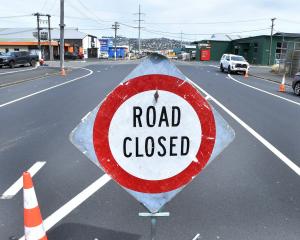
Caps on the number of students accepted through affirmative pathways, such as Maori and Pacific, remain a possibility, however.
The university medical admissions committee met last week and decided to continue deliberations over a document that explores possible changes to the way students are admitted.
Changes, possibly affecting students’ second year of study, could apply from 2022.
Discussions are understood to relate to policy that promotes producing a diverse health workforce.
University representatives have been tight-lipped about what changes could be considered and why, and student associations have been seeking answers.
Otago University Medical Students’ Association president Anu Kaw was encouraged by recent developments, including the university committing to its "mirror on society" policy.
Instead of relying purely on grades, some students qualify for medical school through other pathways — Maori, Pasifika, rural, refugee and a socioeconomic category.
"We are grateful that the university is honouring its commitment to health workforce equity, that there will be appropriate consultation with Maori and Pacific leaders and inclusion of the student voice in shaping any future policy changes," Miss Kaw said.
Committee members were committed to a statement by Otago Medical School dean Rathan Subramaniam, Miss Kaw said. That included delivering a health workforce representative of the demographic make-up of the New Zealand population.
University of Otago health sciences pro-vice-chancellor Paul Brunton said the paper presented to the committee last month was a discussion document only and no formal proposal had been made.
If such a proposal eventuated, Maori and Pacific representatives and student groups would be among those consulted, he said.
The university declined to release the document because it was considered an "in-house tool".
Prof Brunton confirmed to RNZ the document included a suggestion to cap the Maori entry pathway to 56 students and the Pacific entry pathway to 20 students.
Such figures were "only numbers included in a discussion document".
Prof Brunton said the mirror policy had generated positive and negative feedback since its introduction.
A legal challenge had been filed concerning aspects of the medical admissions process this year. However, this did not include a specific challenge to the mirror policy or general principles of equity in selection, he said.
There was a gross under-representation of some key populations in the health workforce, but significant progress had been made in increasing the diversity of students accepted.
"Between 2010 and 2016 there was a 124% increase in Maori students, a 121% increase in Pacific and the proportion of students from rural areas grew from 19% to 22%.
"We acknowledge that building a workforce that represents society is a long-term goal that will take many decades."
The medical admissions committee is due to meet again this month.

!["The reality is that [power prices] will be going up for the next few years" — Meridian Energy...](https://www.odt.co.nz/sites/default/files/styles/odt_landscape_small_related_stories/public/story/2026/02/lisa-hannifin-v2_extrewrit.jpg?itok=MQEzuJAo)









